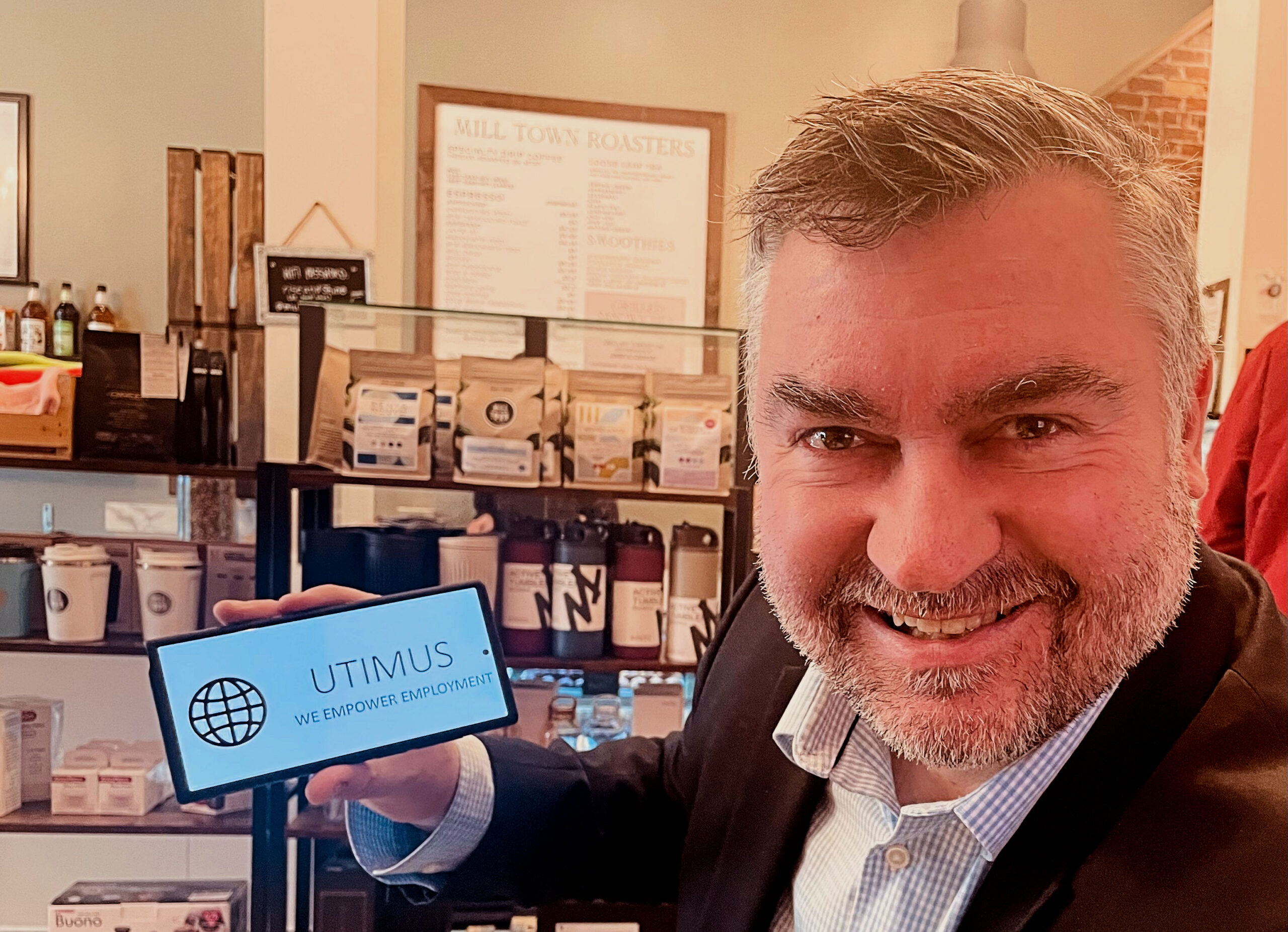An Ontario initiative designed to help newcomers earn Canadian credentials and find employment is getting ready to expand to other parts of the country and New Brunswick is on the list of places it wants to set up shop.
Through its network of partners, Utimus which, in Latin, means “we employ,” identifies, recruits, trains, mentors, and places newly arrived Canadians in meaningful jobs.
Utimus CEO and founder Brian Macdonald of Fredericton, who is also the previous executive director of Aman Lara, a veterans group which helped thousands of Afghans escape the Taliban and hundreds of Ukrainians escape the Russian invasion, said the plan is to expand nationally over the next year once necessary funding is secured.
“People can go on the website and sign up and when we have a program in New Brunswick, we will reach out to them,” Madonald said of Utimus, which was founded in January. “We’ll help these new immigrant groups establish a life in Canada and New Brunswick. In order to be successful, you need a job. There are lots of employers in New Brunswick looking for workers.”
Macdonald said while Utimus’s programs largely involve Afghans and Ukrainians, they’re open to anyone from anywhere who has arrived in Canada within the last 10 years.
“We encourage those from other groups to sign up with us and we will put them into our program streams.”
According to the New Brunswick government there are more than 3,500 people of Ukrainian descent living in the province while Statistics Canada reports just over 600 Afghans.
Madonald said Utimus’s programs focus on the aerospace and the manufacturing sectors, two areas where there are worker gaps.
According to a news release issued in July by the Ontario government, Utimus was given $833,626 “to prepare 60 unemployed or underemployed Afghan and Ukrainian newcomers for work in the manufacturing sector in Ontario.”
“We deal with people who are unemployed or underemployed,” Macdonald said. “These refugees are going to be an asset to Canada but they need a little help getting there. We are trying to harness those skills and get them Canadian credentials, Canadian training and then get them a job.”
Imdadullah Jabarkhail, an Afghan evacuated to Canada in August 2021, has completed all the stages of the program and is searching for work. He described the training as life-changing.
“I learned a lot from that course,” Jabarkhail said. “From the beginning, I didn’t know how to make a good resume, for example. We started from there. I can apply everywhere easier right now.”
Jabarkhail said the program has given him knowledge and boosted his confidence along the way.
“I feel right now that I am manager of the company,” Jabarkhail said. “I feel proud of the teachers and they were so good. When the course was finished, they sent me a certificate.”
The program’s aerospace element, a partnership with Women in Aerospace (WIA) Canada, Utimus, Immigrants Working Centre, McMaster Manufacturing Research Institute, and The Strong Link (TSL) is helping 60 Afghan, Ukrainian and other new Canadian women find jobs in that sector.
WIA said participants are offered a comprehensive suite of skills development and support to prepare them to work in aerospace manufacturing sectors in Ontario.
“The program design is responsive to the additional and unique barriers faced by those who identify as women and non-binary newcomers, current workforce gaps, and the skill sets required by local employers for the target occupations,” WIA said in a news release welcoming immigrant women to the sector.
The Employment Ontario project is funded in part by the federal government and the province of Ontario. It’s unclear how much money is involved.
Macdonald said some of the 120 involved in the two programs are now at the point where they are looking for work while some are already employed.
“We are building a network of employers that are interested in helping these people,” Macdonald said. “It’s great to bring in refugees but we need to get them employed. We are supplying the skills training and the employers that need those skilled workers.”
Madonald said those seeking help with his organization are in the process of rebuilding their lives in a new country and in a different language.
“The unemployment rate among the Afghan population is really high – over 90 per cent. Canada has brought 40,000 Afghans to Canada and they’re struggling to find employment. There are language issues, cultural issues. A lot of the time, you get a job because of who you know and not what you know. And they don’t know anybody. We are trying to help them bridge that gap.”
Newcomers can sign up for current and future programs by using the following link: Utimus.com/signup. If selected, there is no fee.

Michael Staples
Michael Staples is a retired daily newspaper reporter from New Brunswick with more than 30 years experience. He has travelled extensively with Canada’s military and has reported from Croatia, Bosnia-Herzegovina, Kosovo and Macedonia during the Balkans War and from Haiti in 2004 following a three-week bloody rebellion that saw then-president Jean-Bertrand Aristide flee the country. He has also written extensively about Canada's involvement in the Afghanistan War. Michael has considerable experience covering crime, justice and immigration issues. In 1999 he was the lead journalist reporting on the airlift of hundreds of refugees from Kosovo to Canadian Forces Base Gagetown. He has been nominated twice for Atlantic Journalism Awards.

